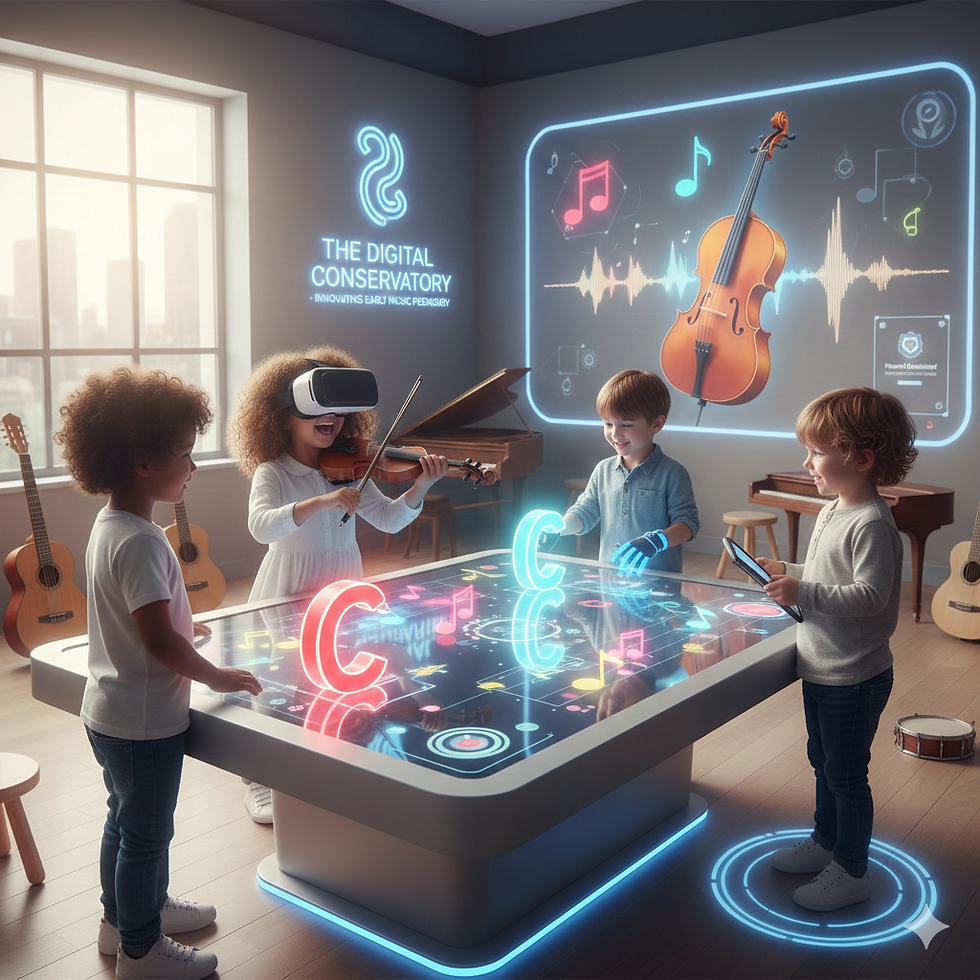"The Sound of Freedom: Reshaping Music Education for the Future"
- Feb 4, 2025
- 3 min read
Updated: Feb 5, 2025
Music education has long been structured around a rigid curriculum, focusing on technical mastery, theoretical knowledge, and historical context. However, as educational paradigms shift towards more student-centered approaches, the concept of freedom learning has emerged as a transformative method in music education. This approach emphasizes autonomy, creativity, and personalized learning experiences, fostering deeper engagement and artistic expression among students. In this article, we explore the role of freedom learning in the curriculum of a music education department and how it can shape the future of music pedagogy.

What is Freedom Learning?
Freedom learning is an educational philosophy that prioritizes flexibility, student choice, and self-directed exploration. It moves away from traditional, standardized instruction and instead encourages students to take control of their learning journey. In the context of music education, this means allowing students to explore various genres, instruments, and compositional techniques while nurturing their individual artistic voices.
Core Principles of Freedom Learning in Music Education
Personalized Learning Paths: Students can design their own curriculum by selecting subjects that align with their musical interests, whether classical, jazz, folk, or contemporary.
Experiential Learning: Instead of solely relying on theoretical instruction, students engage in hands-on learning through performance, improvisation, and collaborative projects.
Interdisciplinary Approach: Music is integrated with other fields such as technology, philosophy, psychology, and cultural studies, creating a holistic learning experience.
Self-Paced Learning: Students progress at their own pace, allowing them to master concepts deeply before moving on.
Mentorship and Peer Learning: Rather than a strict teacher-student hierarchy, learning is facilitated through mentorship, peer discussions, and workshops with industry professionals.
Implementing Freedom Learning in a Music Education Department
A music education department adopting the freedom learning model can introduce several innovative practices:
Flexible Curriculum Modules: Students choose from a range of modules that cater to different musical disciplines, such as improvisation, composition, music technology, and performance.
Project-Based Assessments: Traditional examinations are replaced with projects, live performances, and portfolio reviews that showcase individual creativity.
Collaborative Learning Spaces: Interactive learning environments, such as digital labs, ensemble groups, and online music communities, enable students to collaborate beyond the classroom.
Technology Integration: Tools like digital audio workstations (DAWs), virtual reality (VR), and artificial intelligence (AI) can enhance self-directed learning and experimentation.
Student-Led Research: Encouraging students to conduct independent research on topics of interest, leading to new perspectives and innovations in music education.
Challenges and Considerations
While freedom learning presents numerous advantages, implementing it within a structured academic system poses certain challenges:
Balancing Structure and Flexibility: Departments must ensure that students acquire foundational skills while allowing space for exploration.
Faculty Adaptation: Educators may need training to shift from traditional instruction to facilitation and mentorship roles.
Assessment Models: Developing new ways to evaluate progress without conventional grading systems can be complex.
Resource Allocation: Providing access to diverse musical instruments, technology, and performance spaces requires institutional support.
Conclusion
The concept of freedom learning in music education fosters a dynamic and student-centered approach, encouraging creativity, exploration, and a deeper connection to music. As music education departments embrace this philosophy, they can empower students to become not just skilled musicians but also innovative thinkers and lifelong learners. By reimagining the curriculum, educators can create a more inclusive, flexible, and inspiring environment that aligns with the evolving landscape of music and education.



Comments